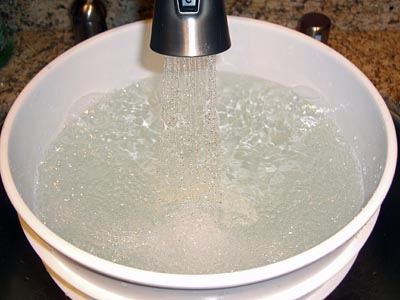Considering how much you use water on a daily basis, have you stopped to wonder if you’re storing it correctly? From distilled to normal drinking water, H20 must be handled and stored with a lot of care to avoid contamination. However, often this is taken for granted and we find our machinery not functioning correctly, or we fall ill. With that in mind, here’s how you can store water effectively according to its use.
Check your water for contamination
While you might have the right equipment for storing different types of water, you should still test it as regularly as possible. Contamination can happen due to a variety of variables, including mishandling or placing your water alongside other chemicals or in plastic bottles in direct sunlight.
If you don’t want to use a professional lab to do the tests, you can purchase your own test kits and DIY. These kits usually come with strips that react to certain elements. They’ll change colour to indicate whether there are any unwanted contaminants in the fluids. However, testing kits may only show one kind of impurity, so you might want to define the elements you’re looking for and then purchase the right kits for your needs.
Storing distilled water
When left out in the open or not properly sealed, distilled water will absorb carbon dioxide and become acidic. What’s more, if you store it in plastic bottles, it will leach the chemicals from the plastic, resulting in the water and get contaminated. Whatever you plan to use the distilled water for, you should store it in glass jugs. Glass has been used for centuries to store the fluid and is yet to disappoint. Remember to wash your storage containers regularly and to keep your distilled water away from other chemicals.
Storing drinking water
Seeing as you use it for virtually everything, from drinking and cooking to washing the body and household utensils, storing drinking water properly is essential to keeping it free of contaminants. This is especially important if you’re in an area that suffers from regular water cuts or plan on going camping.
To preserve water or clean it, use a filtration unit, boil it or, in most extreme circumstances, employ chlorine. When storing H2O, choose sterilised food-grade containers, or select used containers and sterilise them using bleach. It is important that you stay clear of bottles previously containing milk, as they’re hard to clean and contain bacteria that result from the milk residue.
Whether you’re using distilled water or regular water, ensuring that it is clean of impurities and stored correctly will benefit your health and finances. Remember to always store water according to its applications and regularly check to see if it’s clean.




